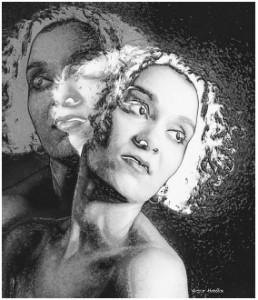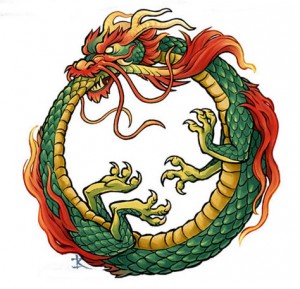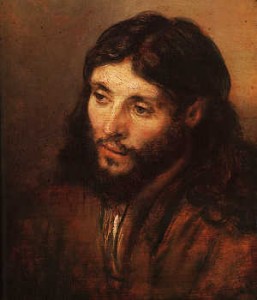 Lenten Journal, Day 15
Lenten Journal, Day 15
[no entry]
Occasional thoughts of an Anglican Episcopal priest
 Lenten Journal, Day 15
Lenten Journal, Day 15
[no entry]

Pastoral Ministry
Sympathy believes that it understands
but in the deepest recesses of insecurity
it trembles mutely wringing its hands
and hopes that presence will be sufficient.
Compassion’s fearful energy blazes
trying its silent best to foster serenity
joining the other in emotional phases
that defy explanation, comprehension resistant.
Kindness stands mute, its care words unspoken,
anxious within the depths of uncertainty;
careful and timid with a heart that’s been broken,
extending gaze and hands both eager and hesitant.
“Why?” is the cry when the question really is “How?”
and “Because” isn’t the answer when the answer is “Now.”
– C Eric Funston, March 12, 2018
I quit publishing Daily Office reflections a week ago and no one seems to have noticed. I’m discontinuing this experiment in biblical meditation for the present.

From Paul’s Letter to the Church in Rome:
In all these things we are more than conquerors through him who loved us. For I am convinced that neither death, nor life, nor angels, nor rulers, nor things present, nor things to come, nor powers, nor height, nor depth, nor anything else in all creation, will be able to separate us from the love of God in Christ Jesus our Lord.
(From the Daily Office Lectionary – Romans 8:37-39 (NRSV) – March 15, 2013.)
 These may be my favorite words from the pen of the Apostle Paul. My mentor during my education for ordained ministry, who also became my first boss after ordination, often referred to these verses and would add, “Not even ourselves.”
These may be my favorite words from the pen of the Apostle Paul. My mentor during my education for ordained ministry, who also became my first boss after ordination, often referred to these verses and would add, “Not even ourselves.”
But there are times when I wonder about things Paul seemed not to know about. Sure, he puts in that great, inclusive catch-all phrase “nor anything else in all of creation,” but what about drugs, addiction, mental illness, brain dysfunction . . . . What about the things that make us no longer us, the things that separate us from ourselves?
We human beings can suffer all sorts of trauma, large or small, that can lead to separation from ourselves, from others, and from the meaning of life. Even simple depression, anxiety, or just getting “off-track,” can create a sense of separation or alienation. We may feel like we are living in a sort of fog; our thinking may become clouded. We may find ourselves unable to access our feelings, and simply not be aware of or engaged in the world around us. We seem to be functional, but we are living a life separated from ourselves and from those who love us. Dissociation becomes a way of life. People in such a state are vulnerable to quick fixes and bad habits, behaviors and addictions that promise quick relief.
My father was an alcoholic who drove off in the middle of the night, angrily separating himself from his family, and a few hours later dying in a single-vehicle automobile accident. He was “not himself;” he was, in a real sense, separated from himself. My mother-in-law took years to slip away deep into the darkness of Alzheimer’s disease; for the last few years of her life, she wasn’t there. In a very real sense, she was separated from herself.
Last Sunday’s gospel lesson was the parable of the prodigal son, a story of separation and estrangement. The story is that the younger of two sons demands his inheritance from his father, takes the money and squanders it, and ends up living as a starving swineherd in a foreign land. There is this wonderful line in which Jesus says of him, “When he came to himself he said, . . . ‘I will get up and go to my father . . . .'” (Luke 15:17-18) “When he came to himself…;” he was separated not only from his father, but from himself. Nonetheless, that separation was overcome and there was reunion first with himself and then with his father.
I do believe in divine grace that precedes any human decision we may make. God’s grace operates in no way dependent on anything we may have done or failed to do. In the words of The Book of Common Prayer, God’s “grace . . . always precedes and follows us” (Collect for Proper 23, pg 234); it allows us to engage our free will to choose reunion, to choose to not be separated, to choose salvation. And I hope that God makes that choice for us when, because of mental illness, alcohol, drugs, brain dysfunction or injury, or whatever reason we are unable to make it for ourselves, when we cannot “come to ourselves.” Because nothing can “separate us from the love of God in Christ Jesus our Lord,” not even ourselves. Nothing!
====================
A request to my readers: I’m trying to build the readership of this blog and I’d very much appreciate your help in doing so. If you find something here that is of value, please share it with others. If you are on Facebook, “like” the posts on your page so others can see them. If you are following me on Twitter, please “retweet” the notices of these meditations. If you have a blog of your own, please include mine in your links (a favor I will gladly reciprocate). Many thanks!
====================
Father Funston is the rector of St. Paul’s Episcopal Church, Medina, Ohio.
From the Book of Joel:
Are you paying me back for something? If you are paying me back, I will turn your deeds back upon your own heads swiftly and speedily.
(From the Daily Office Lectionary – Joel 3:4 – November 16, 2012. Note – Using a cyber-lectionary, yesterday [Nov. 16] I mistakenly clicked on the link today’s lessons and so offered a meditation on Joel’s image of the “valley of decision”. Today [Nov. 17], I decided I would read the lessons from yesterday and make up the difference. It was serendipitous: this part of Joel treats of conflict between Israel and her neighbors. Today, war seems to be erupting yet again between Israel and the Palestinians of Gaza.)
 “Are you paying me back for something?” What an interesting question to find God asking!
“Are you paying me back for something?” What an interesting question to find God asking!
This is the New Revised Standard translation of the verse. An earlier version (The New American Standard) rendered it rather differently: “Are you rendering me a recompense?” This seems to me a rather better translation. The operative words here in Hebrew are shalam and ghemuwl. The first is related to the Hebrew word for “peace” and in a construction such as this means “to complete” or “to make whole” or “to make good”. The second specifically means “recompense”.
“Pay back” suggests revenge of some sort. “Completing a recompense” suggests a settling of accounts. Both are appropriate within the context of the slave trade that was carried on in Tyre, Sidon, and other city-states of Philistia. Historically, we know that the Jews were among those peoples from whom slaves were captured for this trade. This is the context of God’s question. God promises to turn their trade back on them; God will recover the slaves and see the slave-traders themselves sold into captivity.
It is a lesson about evil feeding upon itself, evil begetting evil, hatred begetting hatred, oppression begetting revenge. It seems to be a never-ending cycle. A CBS news item reports this evening, “Israel’s Defense Minister Ehud Barak has authorized the emergency call-up of up to 75,000 reserve troops ahead of a possible ground offensive. Israel has massed thousands of troops and dozens of tanks and armored vehicles along the border in recent days.” Acts of war lead to retaliation; the suffering imposed fosters a thirst for vengeance. A full-scale ground war may be the eventual result, a conflict that may involve many other nations.
The Ouroboros symbol is an ancient one that can be traced to ancient China; it is found in Egyptian and Norse mythology, and also in the art of Medieval Europe. Depicted as a dragon or serpent devouring its own tail, it represents the cyclic and interactive nature of events. Specifically, it reflects how some of our attempts to solve problems, especially attempts that involve violence, can come back to haunt us; our actions have unintended and unexpected consequences which worsen the situation. The serpent feeds on itself. While it is not a part of Jewish or Christian tradition, the Ouroboros readily came to mind as I read this text and God’s promise to “turn your deeds back upon your own heads.” This prophecy reminds us that God is concerned not only with individuals but with nations. Our military leaders, politicians, and the CEOs of major corporations may think they are in charge but, in the end, this is God’s world and God is in control. Missiles fired from Israel into Gaza, or the other direction, will solve nothing; they will only beget larger tragedy. Attack leads to pay back, pay back leads to unexpected consequences, the cycle goes on. The only hope to is to break the cycle, not to feed it.
“Are you paying me back for something?” It is ironic that the question, in Hebrew, includes the word for “peace”. It is not in today’s readings, but this lesson and today’s events recall me to Psalm 122: “Pray for the peace of Jerusalem: ‘May they prosper who love you.'” (v. 6) Pray for all, for Israelis, for Palestinians, for all who love Jerusalem; may they break the cycle of pay back and unintended consequences.
====================
A request to my readers: I’m trying to build the readership of this blog and I’d very much appreciate your help in doing so. If you find something here that is of value, please share it with others. If you are on Facebook, “like” the posts on your page so others can see them. If you are following me on Twitter, please “retweet” the notices of these meditations. If you have a blog of your own, please include mine in your links (a favor I will gladly reciprocate). Many thanks!
====================
Father Funston is the rector of St. Paul’s Episcopal Church, Medina, Ohio.
I’m afraid I’m under the weather a bit … no meditation today. Maybe not tomorrow.
I’ll be on the road for a few days, so will not be doing daily meditations. I should be back by August 1, 2012.
Revised Common Lectionary for Good Friday, Year B: Isaiah 52:13-53:12; Psalm 22; Hebrews 4:14-16; 5:7-9; John 18:1-19:42
In the first act of the drama of redemption, Love tried to teach his lesson through bread and wine, through water and basin, through garden prayer, and through willing surrender to corrupt authority. The Body and Blood symbolically broken, the Body washing other bodies, the Blood sweated out in agonized prayer, these did not suffice and so, betrayed and exhausted, he surrendered. Whether or not he knew what would ultimately happen is irrelevant. He could do nothing else – if he were to remain faithful to his God, faithful to his values, faithful to his principles, faithful to his mission, he could do nothing else. And so now, in the second act, the incarnate Creator is prisoner to Destruction, now Life is condemned to death by Death.
 In the beginning he had been tempted by riches, by power, by idolization; all these had been offered in the desert. Now how great the temptation must have been to simply give up! Poet Denise Levertov ponders this allure in her poem Salvator Mundi: Via Crucis
In the beginning he had been tempted by riches, by power, by idolization; all these had been offered in the desert. Now how great the temptation must have been to simply give up! Poet Denise Levertov ponders this allure in her poem Salvator Mundi: Via Crucis
Maybe He looked indeed
much as Rembrandt envisioned Him
in those small heads that seem in fact
portraits of more than a model.
A dark, still young, very intelligent face,
A soul-mirror gaze of deep understanding, unjudging.
That face, in extremis, would have clenched its teeth
In a grimace not shown in even the great crucifixions.
The burden of humanness (I begin to see) exacted from Him
That He taste also the humiliation of dread,
cold sweat of wanting to let the whole thing go,
like any mortal hero out of his depth,
like anyone who has taken herself back.
The painters, even the greatest, don’t show how,
in the midnight Garden,
or staggering uphill under the weight of the Cross,
He went through with even the human longing
to simply cease, to not be.
Not torture of body,
not the hideous betrayals humans commit
nor the faithless weakness of friends, and surely
not the anticipation of death (not then, in agony’s grip)
was Incarnation’s heaviest weight,
but this sickened desire to renege,
to step back from what He, Who was God,
had promised Himself, and had entered
time and flesh to enact.
Sublime acceptance, to be absolute, had to have welled
up from those depths where purpose
drifted for mortal moments.
(In The Stream & the Sapphire: Selected poems on religious themes [New Directions Books: 1997])
In this second act of the drama of redemption, it is faith and will which prevail, the faith and will of Jesus who did not step back, who did not give in to the human longing to simply cease.
 In this second act of the drama all that has gone before is recapitulated; all that we saw in yesterday’s first act, the supper in the upper room, the act of servanthood taught there, the agonized prayer in the garden, the willing surrender to unjust authority, and more. Not just yesterday’s first act, but all that has gone before from our first act of defiance in the first garden. Poet Ross Miller reminds us of that bond in his brief verse entitled Tau
In this second act of the drama all that has gone before is recapitulated; all that we saw in yesterday’s first act, the supper in the upper room, the act of servanthood taught there, the agonized prayer in the garden, the willing surrender to unjust authority, and more. Not just yesterday’s first act, but all that has gone before from our first act of defiance in the first garden. Poet Ross Miller reminds us of that bond in his brief verse entitled Tau
That dreadful beam
that Jesu bore
knot made from pine
but ancient tree
that bore a bitter fruitThat pole on which it hung
he hung
knot made from pine
undying tree of life
that bears forever fruitTake and eat – the Serpent cried
You shall not die
You shall be
like God
We bit
The Servant took those twisted words
held them on the knotted wood
Take and eat – the Servant cries
You shall not die
You shall be
like me
(Found at Stations of the Cross)
We shall be like him! It is here on the cross in this second act that the promise of the Incarnation, the guarantee of the Nativity is made good. Then we sang
Great little One! whose all-embracing birth
Lifts Earth to Heaven, stoops Heaven to Earth.
(In The Holy Nativity of Our Lord God: A Hymn Sung as by Shepherds, Richard Crashaw [1613-49])
Here on the cross, indeed, God “gathers up all things in Christ, things in heaven and things on earth.” (Eph. 1:10) And here on the cross, in an act of faithfulness and will, he died. Here on the cross, in this final fact of human existence, truly “God became man so that man might become a god.” (St. Athanasius, De Incarnatione)
But his death, we know, cannot be the end of the story. This is only the second act of a three-act drama. So his body must be taken down; it must be dealt with in the appropriate way.

Composer Jimmy Owens paints the picture in his cantata No Other Lamb:
They took Him down,
His poor dead body,
and prepared Him for His burial.They took Him down,
His poor pale body
drained of life, ashen, and stained
with its own life-blood.His healing hands, now pierced and still;
Serving hands, that broke five loaves
to feed five thousand;
Holy hands, often folded in fervent prayer;
Poor gentle hands, now pierced and still.His poor torn feet, now bloodied and cold;
Feet that walked weary miles
to bring good news to broken hearts
Feet once washed in penitent’s tears;
Poor torn feet, now bloodied and cold.His kingly head, made for a crown,
now crowned – with thorns.
His poor kingly head, crowned with thorns.His gentle breast, now pierced by
spear-thrust, quiet and still;
His poor loving breast.His piercing eyes, now dark and blind;
Eyes of compassion, warming the soul;
Fiery eyes, burning at sin;
Tender eyes, beckoning sinners;
His piercing eyes, now dark and blind.His matchless voice, fountain of the Father’s
thoughts, stopped –
and stilled – to speak no more.
Silence now, where once had flowed
Wisdom and comfort, Spirit and life;
His matchless voice; stilled, to speak no more.They took Him down,
His poor dead body,
and prepared Him for his burial.
(They Took Him Down in No Other Lamb [Lillenas Publishing Co.])
And so the second act comes to a close, the body is laid in a tomb and as the rock is rolled to seal it, the now-torn curtain descends. We are left in the darkness of our hearts to contemplate our place in this drama. With poet Luci Shaw we realize that we just may be Judas or Peter….
because we are all
betrayers, taking
silver and eating
body and blood and asking
(guilty) is it I and hearing
him say yes
it would be simple for us all
to rush out
and hang ourselves
but if we find grace
to cry and wait
after the voice of morning
has crowed in our ears
clearly enough
to break our hearts
he will be there
to ask each again
do you love me?
(Judas, Peter in A Widening Light: Poems of the Incarnation [Regent College Publishing, 1997])
I’ve been thinking a lot about the end of the war in Iraq, but I’ve not really come up with anything to say. My friend Brian, on the other hand, wrote a brilliant meditation … here.
© 2024 That Which We Have Heard & Known
Theme by Anders Noren — Up ↑